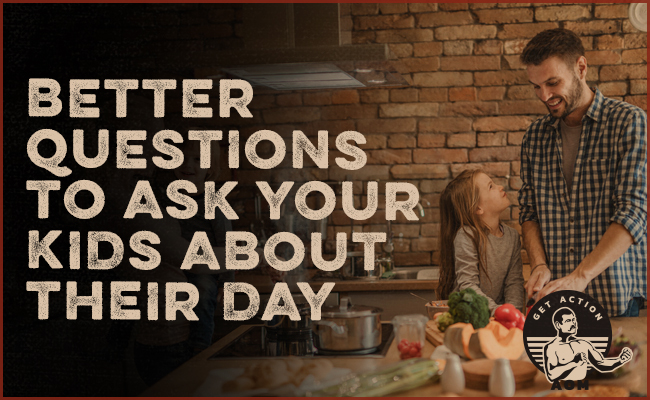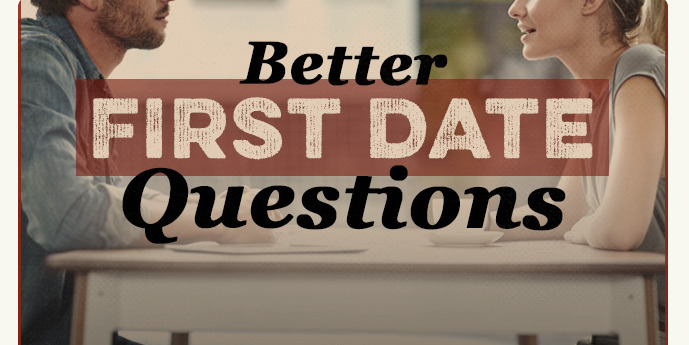
Your friends saw the red flags. Your family voiced their concerns. But you were so caught up in the excitement of new love that you missed all the warning signs. Now you’re stuck in a relationship that’s making you absolutely miserable.
Why does this happen? According to researchers at University College London, “feelings of love lead to a suppression of activity in the areas of the brain controlling critical thought.” In other words, love can not only make you blind, but stupid.
So, how can you keep your brain switched on while dating and dodge potential bullets in the realm of romance? According to relationship expert Dr. John Van Epp, author of How to Avoid Falling in Love With a Jerk, it’s about using both your head and your heart by taking the time to understand your partner’s F.A.C.E.S.
F.A.C.E.S. — The 5 Key Areas You Should Know About Someone Before Making Romantic Commitments
Over decades of clinical experience working with couples as well as decades of research, Van Epp found that there are five areas — represented by the acronym F.A.C.E.S. — that a couple should know about each other before making romantic commitments: 1) family dynamics and background, 2) attitudes and action of a mature conscience, 3) compatibility potential, 4) examples of previous friendship or relationship patterns, and 5) skills for relationships. These five areas can give you an idea of the individual and relational character of the person you’re dating to help you decide whether you want to get more involved with them or not.
Below, we offer some questions, including ones recommended by Van Epp, that can help you more objectively view what your significant other is like in these key areas, spot potential red flags, and assess your compatibility.
(F)amily Dynamics and Background
Family experiences strongly influence our attitudes and behaviors in romantic relationships. Gender role expectations, communication patterns, and approaches for dealing with conflict or stress are all shaped by the experiences we had in our families of origin. So in the beginning of a relationship, ask someone about her family. As it gets more serious, meet her parents and other family members and observe the dynamics that exist between them.
Just because a dynamic exists in her family, doesn’t mean she’s bound to repeat it; while patterns do tend to carry over from generation to generation, sometimes the apple does, in fact, fall very far from the tree. But seeing a dynamic in her family may help you recognize it in her behavior and can simply prompt revealing conversations as to what she wants out of life and how she imagines her future family.
As you’re figuring out the dynamics that exist in someone’s family, explore questions like:
- What’s the state of her parents’ marriage? Even if they’re still married, are they happily married?
- Did both her parents work, or did one stay home with the kids?
- What was her parents’ parenting style?
- How did her parents split household tasks and childcare responsibilities?
- How were finances handled between her parents?
- What was her relationship like with her father? Her mother?
- Is her family affectionate or more stand-off-ish?
- If she has siblings, does she get along with them? Does she still stay in touch with them? Why or why not?
- Was her extended family highly involved in her life?
- What family traditions were important in her family growing up? Does she want to continue them?
- Has there been any family cut-offs or estrangements?
- What was the mood or atmosphere of her home growing up?
- Were there any addictions in the family?
- How similar or dissimilar are your families?
- Does she like to spend time with her family? Does her family like to spend time with her?
(A)ttitudes and Actions of a Mature Conscience
This is all about figuring out if the person you’re dating is a healthy, mature adult. Unlike the family-related questions above, which are more neutrally exploratory, these are questions where you’re looking for a certain kind of answer: one that indicates that the person you’re dating is more mature, rather than less.
- Does she have a personal code or set of principles? What is her sense of right and wrong, and where does it come from?
- Does she make wise and kind choices or just consider her own needs and wants?
- Does she show that she has a sense of how her words and actions affect others?
- Does she try to see the perspectives of others?
- How does she handle stress and setbacks? Is she resilient?
- How does she handle being in the wrong? Does she get defensive, or is she open to feedback?
- How stable versus moody is she?
- Is she impulsive?
- Is she neurotic? (Neuroticism is the personality trait most correlated with unhappiness in relationships.)
- Does she respect boundaries?
- Does she take the initiative or wait until someone tells her to do something to take action?
- Does she set goals for herself and work to achieve them?
(C)ompatibility Potential
According to Van Epp, the strongest relationships have both similarities and differences. What matters most is alignment on the big things — values, life goals, and lifestyle preferences, especially around family, religion, and money. While you don’t need identical interests, sharing some leisure activities strengthens bonds, too. And when differences exist (like one partner being more spontaneous, the other more organized), they should complement rather than clash. The key is finding someone different enough to help you grow but similar enough to build a stable, harmonious life together.
Here are some questions to explore as you figure out your compatibility potential; the more questions you can say yes to, the more likely you are to be a good match:
- Do you share the same values?
- Do you share the same religious beliefs?
- Do you share similar political positions?
- Are your long-term goals compatible?
- Do you have similar ideas on how many kids you want?
- Do you have similar ideas on family roles?
- Do you share a similar sense of humor?
- Do you have similar ideas about how to spend and save money?
- Do you have hobbies or activities that you share in common?
- Do you have a similar level of interest in travel?
- Do you have a similar level of interest in health and fitness?
- Do you have similar energy levels?
- Do you have a similar inclination toward socializing?
- Do you desire a similar level of physical affection?
(E)xamples of Previous Friendship or Relationship Patterns
How we act in one relationship typically demonstrates how we’ll show up in others. Healthy relationships with family, friends, colleagues, and even strangers suggest that an individual has developed the skills to maintain a strong, respectful, and fulfilling connection with a romantic partner.
Here are some questions to explore as you figure out if the person you’re dating exhibits healthy relationship patterns:
- How does she treat service people—restaurant servers, cashiers, attendants, and so on?
- Does she have road rage?
- How does she get along with people at work? How does she treat subordinates? Her boss?
- Has she been fired from a job before?
- Does she have close friends? How does she treat them? Do you like her friends?
- Does she gossip about others and criticize them beyond their backs?
- Did she date others seriously before you? Why did those relationships end? Were the breakups acrimonious?
(S)kills for Relationships
Relationship skills are connected with the attitudes of a mature conscience. You’re looking to see if your partner has the ability to navigate the ups and downs of a relationship maturely. Relationship skills include communication, conflict resolution, empathy, and emotional regulation.
Look for the following when assessing your partner’s relationship skills:
- When you’re talking, does she pay attention to you or check her phone?
- Does she interrupt you when you’re talking?
- When you speak with her, does she ask follow-up questions to ensure she fully understands you?
- Does she show compassion and genuine concern for others’ feelings?
- Does she open up to you when you sense she’s got something on her mind or does she clam up?
- When she has a problem, can she talk to you calmly, or does she blow up or get passive-aggressive?
- Does she stay composed when you have disagreements?
- Does she take responsibility for managing her emotions rather than blaming others?
- Does she make compromises and seek win-win solutions?
- Does she apologize when she’s in the wrong?
- Does she respect others’ needs, time, and autonomy?
- Does she communicate her boundaries without being aggressive about it?
- Does she express gratitude?
- Does she lie?
Know Someone Through Talk, Togetherness, and Time
That’s a lot of stuff to learn about someone you’re dating. And we just scratched the surface of what Van Epp talks about in How to Avoid Falling in Love with a Jerk.
So what does this getting to know each other process actually look like?
According to Van Epp, you get to know someone through talk, togetherness, and time.
As you’re dating, ask thoughtful questions about your potential partner’s life, values, and character. These conversations shouldn’t feel like an interrogation but should emerge naturally as the relationship progresses.
Van Epp also encourages couples to spend time together outside the traditional date. You want to see how you handle different situations, particularly when stressed or overwhelmed. Also spend time with her friends and family to observe her existing relationship patterns.
We often don’t reveal our real selves right away. People are usually on their best behavior during the early stages of a relationship, so that someone’s true patterns and behaviors don’t manifest themselves for three or more months. That’s why Van Epp encourages couples to take their time before escalating a relationship. You need time to have those crucial conversations and to see how each of you behaves in different situations.
Love needn’t be blind, or stupid. By taking time to understand someone’s F.A.C.E.S., you can make a clear-eyed choice about whether they’re right for you. This doesn’t mean finding someone perfect (we’re all works in progress) but finding someone whose habits, values, and character align with what you need in a partner. Remember, it’s all about loving with your heart and your head.
For more insights on how to avoid falling in love with the wrong person, listen to our podcast with Dr. Van Epp:







